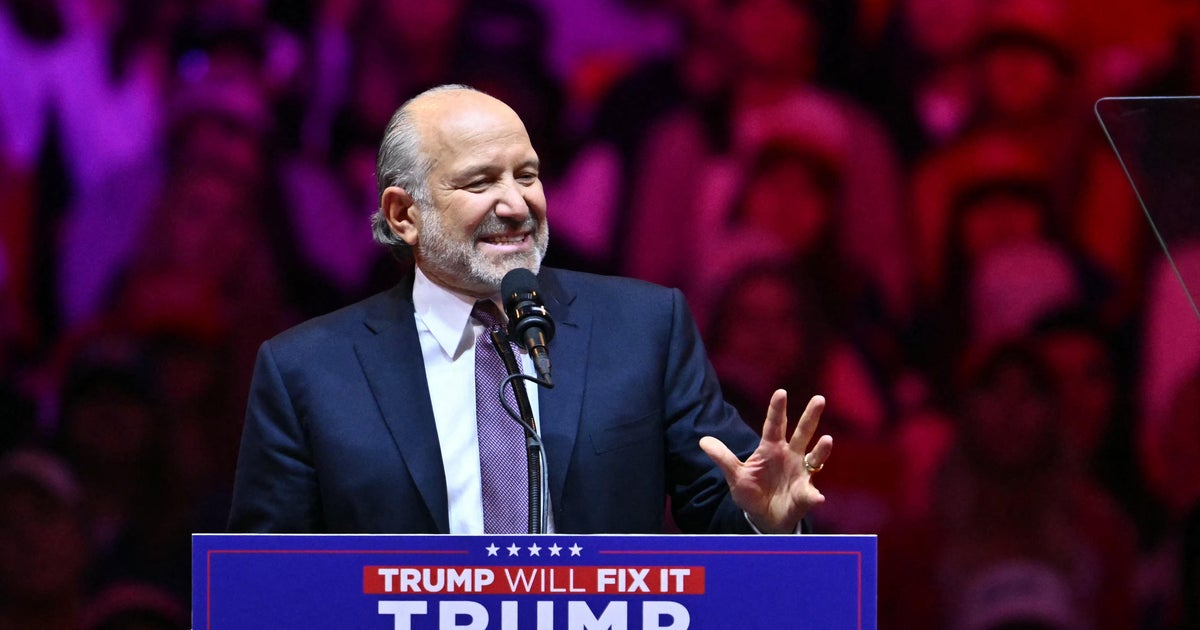Cambridge Analytica CEO Alexander Nix describes "shadow" election tactics
"We're used to operating through different vehicles in the shadows, and I look forward to building a very long term and secretive relationship with you." That's what Cambridge Analytica CEO Alexander Nix told undercover reporters from the U.K.'s Channel 4 News who posed as potential clients over a span of several months. Nix and two of his colleagues described a variety of underhanded methods they could use to influence elections, including but not limited to staging, filming and publishing fake bribery or sex worker stings against opponents, using former spies to conduct intelligence-gathering on political foes and various shades of online voter profiling.
The network aired the exposé Monday evening. Its reporters spoke with senior members of the company, including Nix, managing director Mark Turnbull and chief data officer Dr. Alex Tayler.
"The two fundamental human driver when it comes to taking information on board effectively are hopes and fears, and many of those are unspoken and the even unconscious -- you didn't know that was a fear until you saw something that just evoked that reaction from you," Turnbull explained in a meeting with a reporter posing as "Ranjan," a prospective client from Sri Lanka.
He continued, "And our job is to get, is to drop the bucket further down the well than anybody else to understand what are those really deep-seated underlying fears, concerns. There is no good fighting an election campaign on the facts because actually it's all about emotion."
Turnbull said the data firm often digs up damaging information on politicians for its clients and discreetly pushes the information on the internet.
"We just put information into the bloodstream of the internet, and then watch it grow, give it a little push every now and again like a remote control," he said. "It has to happen without anyone thinking, 'that's propaganda', because the moment you think, 'That's propaganda', the next question is, 'Who's put that out?' So we have to be subtle."
To hide its involvement, Turnbull said Cambridge Analytica often uses subcontractors to cover its tracks. "It may be that we have to contract under a different name -- a different entity with a different name so that no record exists with our name attached to it at all," he explained to the undercover reporters.
Turnbull also spoke with pride about the firm's involvement in the election of Kenyan president Uhuru Kenyatta in both 2013 and 2017. That campaign ended in violence on the streets, and was marked by huge amounts of misinformation and negative smear advertising, hooking into those so-called hopes and fears.
"We have rebranded the entire party twice, written their manifesto, done two rounds of 50,000 surveys ... and then we'd write all the speeches and we'd stage the whole thing, so just about every element of his campaign," he said.
Before the exposé aired, the Financial Times reported that Cambridge Analytica tried to prevent the broadcast. It also threatened to sue to try to stop the Guardian from reporting on how the company acquired 50 million Facebook users' data, reporter Carole Cadwalladr told CBSN on Saturday. The Guardian story, based on interviews with whistleblower Christopher Wylie, a former employee for the firm, was published online Saturday.
At one point in the Channel 4 interview, Nix said the company could "send some girls" to a candidate's house and that he found Ukrainian girls work "very well."
"We'll offer a large amount of money to the candidate, to finance his campaign in exchange for land for instance, we'll have the whole thing recorded, we'll blank out the face of our guy and we post it on the Internet," he said.
Cambridge Analytica released a statement in response saying, "The report is edited and scripted to grossly misrepresent the nature of those conversations and how the company conducts its business."
The firm said it met with the undercover reporter to discuss "philanthropic, infrastructure and political projects in Sri Lanka" and the reporter "later attempted to entrap Cambridge Analytica executives by initiating a conversation about unethical practices."
In the statement, Nix said he was "playing along with this line of conversation" and "entertained a series of ludicrous hypothetical scenarios" to spare the potential client from embarrassment.
"I am aware how this looks, but it is simply not the case. I must emphatically state that Cambridge Analytica does not condone or engage in entrapment, bribes or so-called 'honeytraps', and nor does it use untrue material for any purpose," Nix said. "I deeply regret my role in the meeting and I have already apologised to staff. I should have recognised where the prospective client was taking our conversations and ended the relationship sooner."
The company came under fire after Facebook suspended the data firm accusing it of violating its terms of services and storing data extracted from tens of millions of Facebook profiles.
Facebook alleges that users' data was taken without their permission, but in reality, it was extracted using a loophole in Facebook's app ecosystem at the time. Cambridge Analytica said a researcher built an app that provided a personality quiz to Facebook users, but Facebook claims the researcher then "lied to us" and passed the content onto Cambridge Analytica. That firm then used the data to build "psychographic profiles" about voters.
Massachusetts Attorney General Maura Healey has announced that her office is launching an investigation into the data usage.
Politicians in both the U.S. and the U.K. are demanding that Facebook CEO Mark Zuckerberg explain how the data theft occurred and how the company plans to protect consumers.



